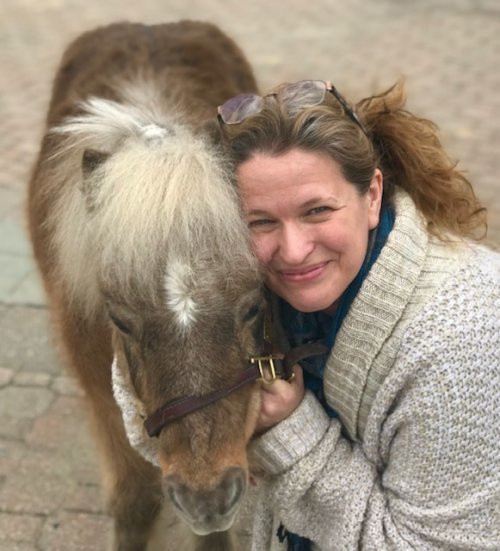Countdown to the Kentucky Derby - 121 days to go!

121 Days!!!! 1898 Plaudit was a son of Himyar, who ran second to Day Star in the 1878 Kentucky Derby. Himyar also sired the great Domino. Plaudit was bred by Dr. J. D. Neet of Versailles, KY.
He was bought by trainer, Ed Brown, who owned and trained him throughout most of his 2YO year. He won four of his 12 races at 2, and after finishing fourth in the Futurity Stakes, was purchased by the well-known John E. Madden for $6500. John E. Madden, the owner of the famed Hamburg Place in Lexington, bred 5 winners of the Derby, although he didn’t own any of them when they won. Madden was a respected breeder, owner, and trainer, and is responsible for many improvements to the care and well-being of Thoroughbred race horses. He was the leading breeder of races won from 1918-1927, and of money earned in 1922, 23, and 25.
He bred 8 winners of more than $100, 000 (Zev, Princess Doreen, Grey Lag, Spinach, Boniface, Sir Barton, King James [a son of Plaudit], and Joy Smoke). He was the first breeder of a Triple Crown winner in Sir Barton. Hamburg Place was just as well known for the Standardbreds that were raised there.
In September of his 2YO season, after being purchased by Madden and transferred to trainer Albert Simons, Plaudit was entered into a race open to older horses. He entered the race off of a 6th place finish in the Partridge Stakes for 2YOs. At underwhelming odds, Plaudit pulled off a shocking victory in the 1 1/16 contest over 1896 Kentucky Derby winner, Ben Brush, who would go on to earn Horse of the Year.
Plaudit was sent to Churchill Downs to be prepared for the Kentucky Derby. The Derby was the first start of his 3YO campaign. The day started off cloudy, and a light rain storm did little change to the track, other than damping down the dust. Plaudit was the second favorite behind Lieber Karl, a Tennessee challenger, and the race came down between the two. Ridden by Ben Brush’s Derby jockey, Willie Simms, the duo got off to a slow start, while Lieber Karl took a strong hold of the bit and went to the front. They managed to set slow fractions for the race, and Lieber seemed to have the race to himself. Plaudit had stayed within striking distance, and when Simms called upon his mount, Plaudit surged forward and the two battled back and forth to the wire, with Plaudit grinding out a scant victory.The two other challengers were left some 20 lengths behind. Plaudit fought as they tried to adorn him with of the collar made of red roses, with a few hearty kicks. Plaudit would again meet Lieber Karl in the Clark Handicap, and would again hand him a loss.
Madden sold Plaudit to William Collins Whitney for $25,000 before the Realization Stakes, but would purchase him back after his next race, when he was injured, for $12,000. He was retired to stud at Hamburg Place, with a record of eight wins and five seconds in 20 starts. At stud he would sire 22 stakes winners. Holy Bull’s male lineage traces back to Plaudit.
Plaudit’s greatest contribution was actually through his son, King Plaudit, who heavily influenced the Quarter Horse breed, through many successful show horses and race horses. He was inducted into the Quarter Horse Hall of Fame for his influence on the breed. Plaudit died in 1919, and was buried in the Hamburg Place cemetery.
From “The History of the Kentucky Derby, 1875-1921”: “When the winner trotted back to the stand, the heartiest ovation tendered a Derby winner in recent years was given him. The crowd surged through the gates and over the fence and it was necessary to call a policeman to keep the enthusiastic crowd from the horse's heels. A wreath of red roses was placed about the victor's neck, and as he was led before the stand the crowd — ladies and all — arose and cheered the hero to the echo.”
One of the favorite things that I’ve read about the Kentucky Derby was published in the Courier-Journal following Plaudit’s Derby triumph, concerning the way people in attendance were cheering for Plaudit’s win, even if they backed another horse. I think it perfectly fits for those of us who love horses and the sport of racing: “Simply because in this country where men know the horse they love him. And they love him because if he is bred on true lines he will do his duty. He will answer every call that one who has a right to ask will make on him. He will fight when fighting seems hopeless. He will race till his flanks are flat and his eyeballs strain to bursting. And when that will not win he will break his heart to do a little more.”



